
How to win on the South China Sea issue
One of the areas in which President Trump’s administration is looking like a retread of past diplomatic efforts – and failures – is the matter of the South China Sea. China has claimed hegemony over much of the critical trade route – and has literally built islands to establish protective military installations.
President Trump has taken the obligatory symbolic action by sending our military ships into the waters that China wrongfully claims. China is not about to go to war with the United States by sinking those ships. They will complain – issue formal protests.
On the other side of that issue, when China was building those islands, we – and other nations – said they were illegal under international law. But that was it. Constructions on the islands never even slowed down – and no international tribunal has dragged Chinese President Xi Jinping into the international courts. This is the standard operating procedure of modern diplomacy — warn, negotiate, protest … and then do nothing.
In an unrelated issue, Trump has ordered the closing of the Chinese consulate in Houston because it was active in spying and stealing intellectual property. In what is the diplomatic version of tit-for-tat, the Chinese ordered the closure of the United States consulate in ChengDu. In diplomatic circles, this is considered a “measured response.”
In ignoring the American ships traversing the South China Sea and in invoking a “measured response” in ChengDu, the purpose is the same – to avoid escalating the situation. The problem with that thinking – and we have seen it played out over decades by the pinstripe pants crowd – is that it resolves nothing. Our ships will sail the South China Sea, the islands will remain and at some time in the future consulates will be reopened.
“Escalation” is verboten in diplomatic circles. But escalation is the only way to get action on an issue. The most iconic example of diplomatic avoidance of escalation was when British Prime Minister Neville Chamberlain met with Adolph Hitler – and allowed the despot to keep the Sudetenland in return for “peace on our (his) time.” That time ran out very quickly when Hitler invaded Poland.
Escalation does not have to mean war – although one should never weaken their position by unilaterally taking it off the table. Escalation can be in the form of increasing the pressure. In the case of the South China Sea, the United States may be missing an opportunity to increase the pressure on China.
We know that several Southeast Asian nations are opposed to China’s claim to what are considered international waters. We know that Europe has concerns about China’s seizing control of a critical trade route.
This provides Trump with a very bold option that would further isolate China and, at the same time, place real painful pressure on Xi to give up his plan of territorial expansion.
If I were to play “If I were the President,” I would convene an international meeting on the subject of China’s claim. I would invite you to meet with the many allies in the region AND I would do it in Vietnam.
This would be a masterstroke of monumental proportions – with implications way beyond even the South China Sea issue. It would draw attention to a less perceived reality. That the Vietnam War is ancient history in political terms. American and western businesses have been pouring into Vietnam. Vietnam’s relationship with China has soured. Vietnamese people seem to like Americans. I know that anecdotally from my two sons who have traveled in Vietnam on vacations. Many American veterans have made healing trips to the one-time war zone – including the late Senator John McCain, who was held prisoner-of-war there for more than five years.
The nation’s in the region would inevitably take part – including Japan, India and South Korea. It is conceivable that other stake-holding nations in Europe and elsewhere would participate. Not only would such a move present a powerful unified front against Chinese expansionism, but a coordinated series of sanctions would inflict real economic pain.
Although not on the schedule, the question of Hong Kong might be discussed in sidebar conversations. If done correctly, China could be isolated from most of the world community. That – on top of their fall from grace over the Covid-19 pandemic – could result in an overall re-examination of Xi’s more aggressive and confrontational policies.
It could … just could … put Russia in a box. President Putin could be forced to pick a side on the issue of the South China Sea. He is in a no-win position on that.
It would not be Trump’s first visit to Vietnam. He and North Korean dictator Kim Jong-un met there in 2019. But that was just a common ground meeting place for the two leaders. This would involve Vietnam as a host and stakeholder. Trump also hosted Vietnam Prime Minister Nguyen Xuan Phuc at the White House in 2017. Forging a bond with Vietnam could be one of the most important strategic diplomatic maneuvers in terms of Eastern Hemisphere diplomacy
That is the kind of creative escalation that seems to be lacking in Washington. Trump has been a disruptor of the old order – and that is a good thing – but he seems to have fallen into old diplomatic habits. He needs a big win – and a confab in Vietnam would be just what is needed. It would show the American public that there is more to being President of the United States than a pandemic.
So. There ‘tis.


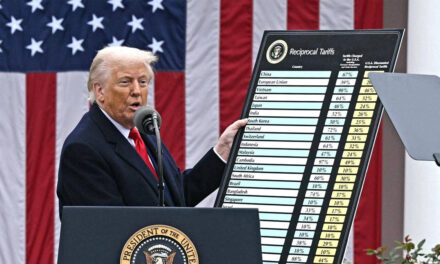
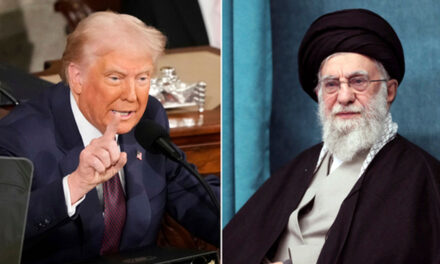

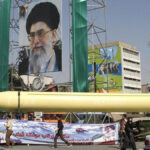
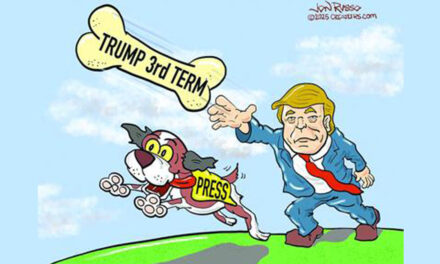
















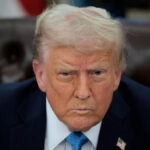



Great Article Larry,
I do consider you the “new Charles Krauthammer.”
But this only the beginning. You need to write more thoughtful articles on this subject. Have you read my “Anti-CCP Policy Proposal? Have you read my letter to Pham Binh Minh? If not, please let me know and I will send them to you again.
Vietnam needs to play a key leadership role. They should host the summit in Hanoi of all nations opposed to China’s illegal occupation of those islands I think there are at least 12 nations including Japan, Korea, Malaysia, Thailand, Taiwan (yes invite Taiwan!) The Philippines, Indonesia, Brunei,Australia, New Zealand, India, Britain and France. Step 2 is for Vietnam to rent out Cam Ranh Bay port and air base not to just the USA but to all of the nations mentioned above who are wiling to join this anti-CCP Alliance. And Step 3 is to conduct joint sea and air patrol of the Chinese Coast from Vietnam to Japan and return on a continuous, non stop basis until China gives up and removes it’s equipment and personnel from these islands.
And last step 4 will be grealy reduced trade with China by all members of this Alliance. This combined action will defeat China without firing a shot! If the above is done, it is win, win situation for everyone including the Chinese people in China, Hong Kong, Taiwan and around the world. I hope you will agree to write more to promote these ideas. Best personal regards,
David Devin